
Cherokee Bill can be compared to John Dillinger and Pretty Boy Floyd of the 1930s. Like these men, he garnered national press for his exploits; the well-known New York Times had a running commentary on his actions and deeds in the Indian Territory. Cherokee Bill was every bit as colorful and outrageous as any criminal on the Western frontier, perhaps even more so. There were a few things about him that made him truly unique for a famous desperado of the purple sage. First and foremost, he was an African American living in the Indian Territory. He was also a Native American, a citizen of the Cherokee Nation as an Indian Freedman from his mother’s lineage. Compare Cherokee Bill to Billy the Kid of New Mexico Territory fame. Although both outlaws received national media attention for their crimes while they were living, Billy the Kid was remembered and immortalized in books and films in the 20th century, but this did not occur for Cherokee Bill.
The boldest and most brazen robbery by Cherokee Bill and the Cook gang occurred on Monday morning, July 30, 1894, when the gang robbed the Lincoln County Bank in Chandler, Oklahoma Territory. Chandler was the county seat of Lincoln County; a few years later, the famous Dodge City, Kansas, lawman Bill Tilghman would become sheriff of Lincoln County.
At about ten o’clock on that July morning, five heavily armed cowboys rode into town from the northeast, coming down Manvel Avenue to 7th Street, where they turned and went to the alley. They rode behind Fletcher’s Hardware Store and stopped at the rear of the Lincoln County Bank, where they dismounted….
The Guthrie Daily Leader earlier on August 1, 1894, carried a front-page story that said:
Bu hikaye True West dergisinin December 2020 sayısından alınmıştır.
Start your 7-day Magzter GOLD free trial to access thousands of curated premium stories, and 9,000+ magazines and newspapers.
Already a subscriber ? Giriş Yap
Bu hikaye True West dergisinin December 2020 sayısından alınmıştır.
Start your 7-day Magzter GOLD free trial to access thousands of curated premium stories, and 9,000+ magazines and newspapers.
Already a subscriber? Giriş Yap
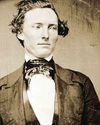
FIREARMS COLT WALKER 47
THE LEGENDARY HANDGUN THAT REALLY WON THE WEST
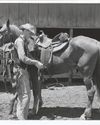
HERITAGE TRAVE
THE AMERICAN WEST IN ALL ITS GLORY OUR ANNUAL FAVORITES LIST CELEBRATES DESTINATIONS ACROSS THE WESTERN UNITED STATES.
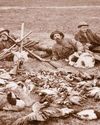
Wild Turkey, and Not the Drinkin' Kind
The actual bird was a favorite of pioneers.
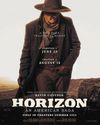
THE PASSION PROJECTS OF THE MODERN WESTERN
A YEAR OF UNDERRATED EXCELLENCE
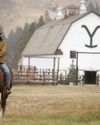
WESTERN BOOKS THEN AND NOW
THE STATE OF WESTERN HISTORY AND FICTION PUBLISHING IN 2024 IS ONE OF GRIT AND DETERMINATION.
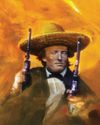
SAMUEL WALKER VALIANT WARRIOR
While a prisoner at the castle of Perote, Walker was put to work raising a flagpole. At the bottom of the hole, Walker placed a Yankee dime, vowing to someday come back and retrieve it, at the same time exacting revenge on his Mexican captors. In the summer of 1847, when Walker's mounted riflemen returned and routed Santa Anna's guerillas, the young captain kept his promise and got his dime back.
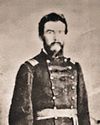
THE BATTLE OF CENTRALIA
ON September 27, 1864, Bloody Bill Anderson and about 80 men took over the small railroad village of Centralia, looting stores and discovering a barrel of whiskey that they hauled out into the street. Wild enough when sober, they soon were roaring drunk.
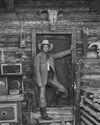
THE MAN WHO SHOOTS THE WEST
Jay Dusard is a living American photographer who has made Arizona his home for over 60 years, seeing it first in 1960 on a visit, moving here for good in 1963.
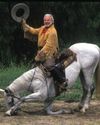
A TRUE WESTERNER INDEED PHIL SPANGENBERGER 1940-2024
Spangenberger had Nevada trained to bow by the legendary horse trainer, Glenn Randall, who trained Roy Rogers' Trigger, Gene Autry's Champion, Rex Allen's Koko and the Ben Hur chariot horses, among other great equines.

Where Did the Loot Go? - This is one of those find the money stories. And it's one that has attracted treasure hunters for more than 150 years.
Whatever happened to the $97,000 from the Reno Gang's last heist? Up to a dozen members of the Reno Gang stopped a Jeffersonville, Madison and Indianapolis train at a watering station in southern Indiana. The outlaws had prior intelligence about its main load: express car safes held about $97,000 in government bonds and notes. In the process of the job, one of the crew was killed and two others hurt. The gang made a clean getaway with the loot.